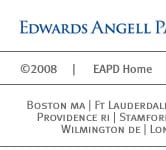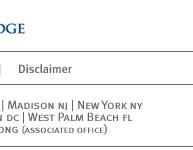
New Disclosure Rules in International Arbitrations in the US
Among the concerns of non-U.S. parties involved in international commercial arbitration proceedings here is that of information exchange with an American business adversary. For years, resistance to an American arbitral location was driven in part by an effort to avoid the “discovery” process. Information or document discovery in too many instances mirrored the burdensomeness of the intrusive American court system. Indeed, American lawyers in international arbitrations frequently 'imported' the formal judicial standards by agreement, custom or practice into a supposedly less formal arbitral process, with attendant cost and delay.
New Guidelines
This so-called 'litigation trend' in American-sited or administered international commercial arbitration was very recently constrained. Now, there are new guidelines issued to arbitrators by the American Arbitration Association International Centre for Dispute Resolution. Some serve to narrow disclosure. For example, requests for the production of documents (reasonably believed to exist in the possession of the other party) are now limited to those which are “relevant and material” to the outcome of the case. This is actually a substantial narrowing of the expansive standard often employed previously; namely, documents “reasonably calculated to lead to the discovery of admissible evidence”. The new restrictive standard will provide both greater predictability, as well as savings of time and money in the pre-hearing preparatory phase. Similarly, the new guidance also informs arbitrators that depositions, interrogatories and requests for admission - typical discovery tools of domestic US litigation - are generally inappropriate for obtaining information in international arbitration. In these ways, the new restraints on discovery are better calculated to serve traditional arbitration goals of speed and economy.
Greater predictability is also enhanced by a new guideline mandating that the parties exchange, in advance of hearings, all documents upon which each actually intends to rely. Historically, there was some uncertainty whether parties would exchange only those documents upon which they would rely in support of their 'direct' case, or also those expected to be relied upon in cross-examination or rebuttal, at least where a common law adversarial process was utilized. Party autonomy prevailed, resulting in inconsistent practice, and sometimes in evidentiary surprise. Now, there is clarification that all documents upon which there is an expectation of reliance need be exchanged in advance of evidentiary hearings. In effect, predictability and transparency trump flexibility in the reformed process.
Comment
Still, it remains open to parties to seek to vary these new standards by the exercise of party agreement. While that may happen on occasion – likely impelled by litigators used to the domestic American legal procedure – the default position is now more economical; there is greater certainty; and there is typically going to be at once less intrusiveness in discovery, as well as fuller exchange of documentary evidence before hearing. As a result, non-American parties now may more comfortably embrace an AAA arbitration forum and rules in their contracts.
Contacts
The information in this newsletter is for general guidance only and is not intended to be a substitute for specific legal advice. If you would like any further information please contact:
Phillip D. O'Neill
Partner, Commercial Litigation - Boston
t: +1 617 951 2253
e: PONeill@eapdlaw.com
PHILIP D. O’NEILL, Jr. is a US based partner with decades of experience in international arbitration as an advocate and arbitrator. He is a Chartered Arbitrator and Fellow in England’s Chartered Institute of Arbitrators, as well as in the College of Commercial Arbitrators. He was the Nomura Lecturer in Law in International Arbitration at Harvard Law School in 2005. He has taught the subject as a Adjunct Professor at Boston College Law School for twenty years.






